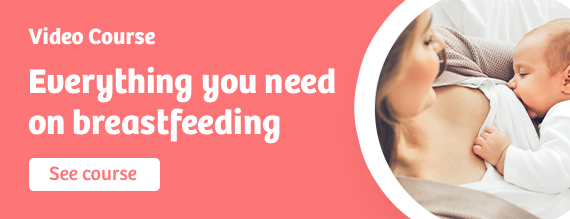Mastitis: Causes and Treatment
Mastitis is a condition that affects women, especially breastfeeding mothers. You may feel anxious about this inflammation, with thoughts racing to the possibility of breast cancer. In this article, we will go into the details of this condition, its symptoms, causes, and the most successful treatment methods.


Breastfeeding Challenges
Breastfeeding is the best gift a mother can give to her child and herself, offering numerous benefits for their health. It is a significant journey in the path of motherhood, filled with beautiful emotions and a unique bond between the mother and the child. However, it is also an experience full of challenges, including:
- Sore and cracked nipples are common challenges in breastfeeding, especially for new mothers. This painful issue often leads many mothers to stop breastfeeding. However, it can be overcome by ensuring the baby latches onto the breast correctly, using breast pumps, nipple shields, and lanolin creams as a doctor recommends.
- Breast engorgement is a common problem that occurs in the first days after childbirth, especially when milk production begins. It can also happen later due to not emptying the breast properly. This painful issue usually resolves within a few days with warm compresses and proper breastfeeding to fully open the breast, along with the use of manual breast pumps.
- Milk duct blockages: Discussed in detail by breastfeeding specialist Sally El-Beir in this article.
- Improper latching is the leading cause of many other breastfeeding problems. Therefore, seeking support and guidance from a breastfeeding specialist before leaving the maternity hospital is essential to learn proper breastfeeding techniques and avoid these issues.
What is Mastitis?
It is swelling in the breast tissues, specifically in the milk glands, and sometimes inflammation can also occur in the milk ducts. Forms of Mastitis may arise due to the formation of lumps caused by milk clots in the breast, especially in breastfeeding women during the first three months after childbirth. Alternatively, it may result from bacteria infecting breast tissues, causing inflammation and swelling.
Causes of Mastitis for non-breastfeeding women
Bacterial penetration of the skin layer surrounding the breast tissues, reaching the internal breast tissues, causing inflammation and swelling in the breast.
Causes of Mastitis for Breastfeeding Moms
When milk lumps form in the breast during breastfeeding, and if these clots do not resolve on their own, increase in size, and persist longer than expected, they often lead to Mastitis. Other causes are nipple cracks during breastfeeding, wearing tight bras, improper latching, and uncomfortable breastfeeding positions. In some cases, sudden weaning from breastfeeding can also cause Mastitis.
Symptoms
- Elevated body temperature.
- Swelling in the breast.
- Redness.
- Pain accompanied by breast warmth.
- Cracks and wounds in the skin around the breast and nipple.
- Pain under the armpit.
- The feeling of fatigue and exhaustion.
- Unusual discharge from the nipple.
- Headache and nausea.
Prevention
- Do not neglect nipple cracks and treat them promptly.
- Ensure the baby latches onto the breast correctly.
- Gradual weaning from breastfeeding.
- Wear a comfortable bra that does not compress breast tissues.
- Breastfeed on demand and ensure thorough breast emptying.
- Do not hesitate to use a breast pump if direct breastfeeding is not possible.
Treatment
Home remedies
- Apply warm compresses to alleviate pain and reduce swelling.
- Drink sufficient fluids.
- Gently massage the breast.
- Continue breastfeeding.
- Get enough rest.
Medical and surgical treatments
If the above advice does not help, consult a doctor to assess your condition and prescribe appropriate treatment. The best treatments may include:
- Pain relievers and fever reducers.
- Anti-inflammatory and swelling medications like ibuprofen help alleviate pain and reduce fever.
- Some antibiotics effectively treat Mastitis, but it is crucial not to take any medications without consulting a doctor.
- Sometimes, the doctor may perform a minor surgery that does not require hospitalization. This involves a small surgical incision to drain the swelling in the breast.
Doctors typically prescribe treatments suitable for breastfeeding mothers that do not impact breastfeeding or harm the infant. Therefore, you can continue breastfeeding if a specialized doctor prescribes the treatment.






